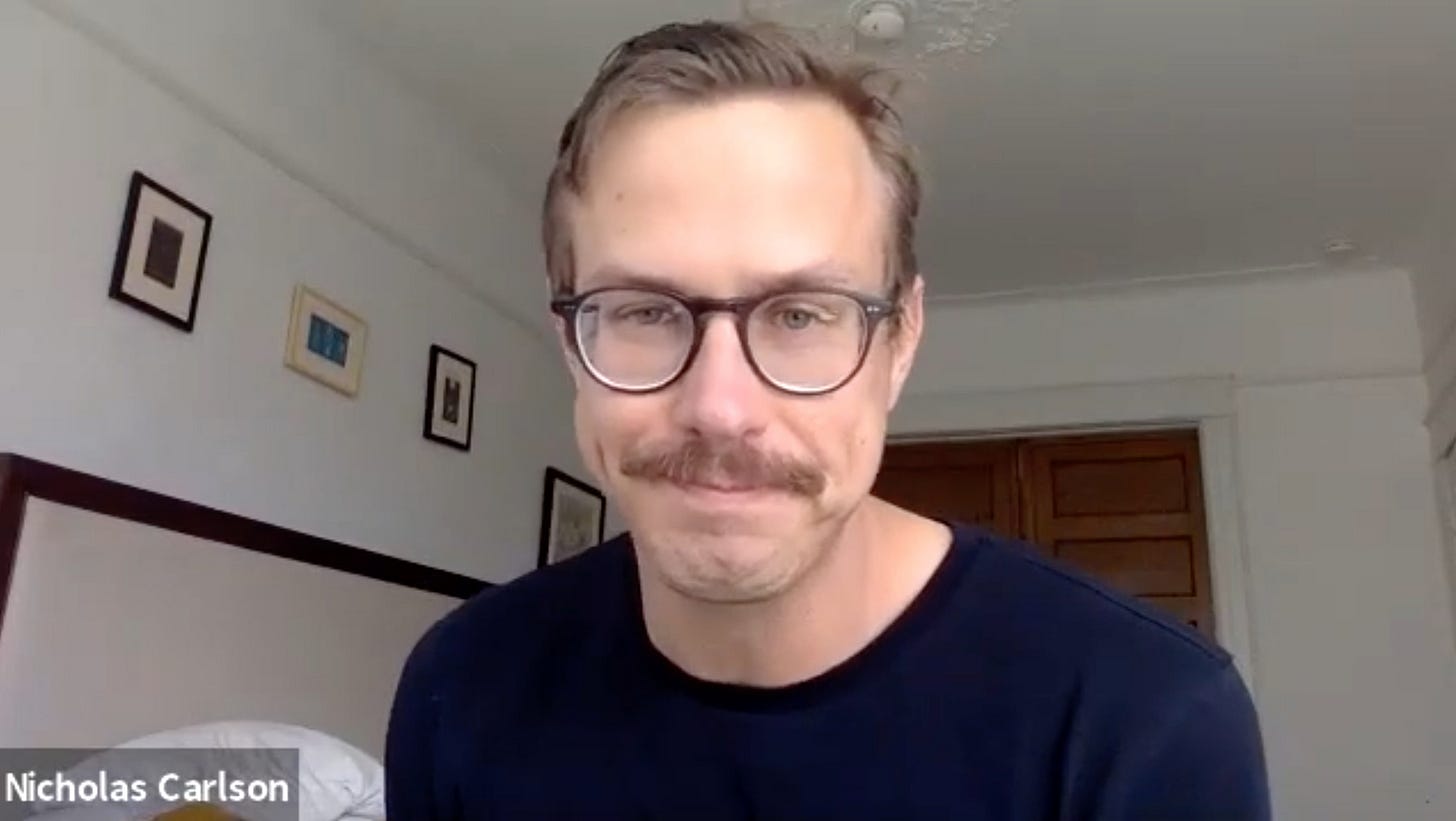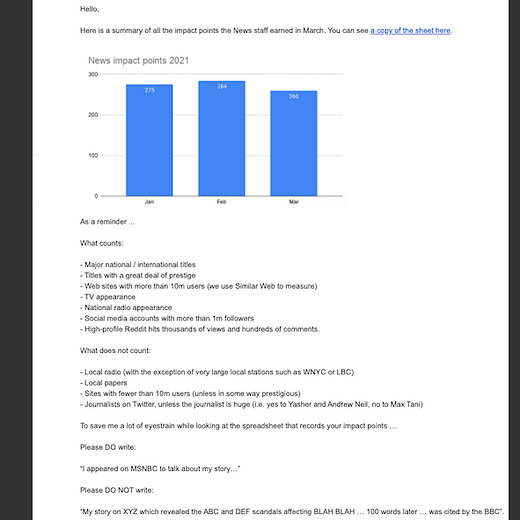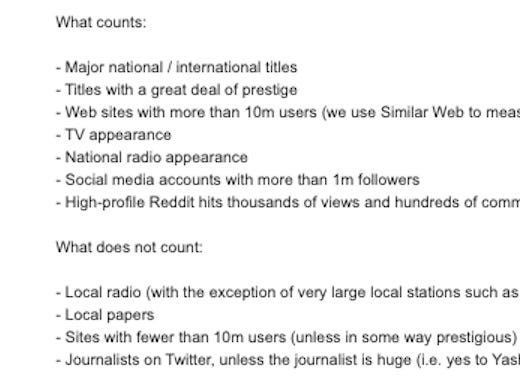Insider Really Isn't Sending Its Best
A lesson in how not to communicate with your staff.
There are very few "good" bosses in the digital media industry. Part of that is because the general practice of journalism is complicated, high-risk and low reward. The industry is also, for the most part, run and governed by parasites who have created a system where having employees quit all the time is actually a good thing because it means less bad PR from layoff cycles.
At its best, you hope for a boss that isn't actively antagonistic to what you're trying to do. At worst, you get exactly that. Most bosses in the industry fall somewhere in the middle -- often shitty, frequently oblivious, and sometimes overtly dumb. Which brings us to the leadership of Insider (formerly known as Business Insider).
On Tuesday, Daily Beast media reporter (and former Insider employee) Max Tani tweeted out a screenshot of an internal Insider email from Insider's Editor in Chief for News Jim Edwards. The email laid out the company's definitions of "impact points," a made-up metric they use to determine a story's success. Tani thought that the email was funny because it specifically mentioned that an RT from him did not count as an impact point (this was very funny).
This would have been a good little afternoon laugh on its own, had Edwards and Insider management simply let the thing lie and laughed it off. However, that is not what they did.
Jim, my man, you walked right into that one.
Tani's tweet started to snowball, bringing former employees out of the woodwork to air grievances against the company (and against Edwards in particular). And then. What's that? By god... that's Insider Global Editor in Chief Nicholas Carlson's music!
These are not things that you have to say! You don't have to respond to this! But "not engaging" simply isn't in the nature of the man who once admitted online that he did not know how long congressional terms were.
Insider is one of the few, dare I say it, success stories of the pandemic. Unlike basically every other publication, its founder Henry Blodget was able to convince his German publishing overlords to not shitcan everything in sight at the first sign of a wobble in the Dow Jones, and was rewarded with a 30 percent revenue spike in the second half of 2020. (Disclosure: Insider used some of this money to pay me for a few freelance pieces over the past year. To be fair, they pay well!) They've achieved this through a relentless focus on both pageviews and subscription generation, combining the two barely-profitable models of online journalism (a flood of SEO/social chum to sell ads against and premium content people will pay a monthly fee for) into one enterprise.
The company has moved some of that money around in shrewd ways, like instituting a minimum pay guarantee of $60,000 for all U.S. employees in February. Insider is also one of the few remaining digital media shops not represented by the WGAE or News Guild, which often promise to fight for salary floors in their first collective bargaining agreement.
Though this general prosperity has left Insider largely unscathed from the layoff cycles that have plagued the rest of the industry, the work required to pay these dividends is often grueling. "I will give Insider credit for never doing a mass layoff but that’s because they drive people out at an insane clip," one former employee told Discourse Blog. There are many different factors that could explain this, several of which are exemplified above, but it's worth noting that even internally, Carlson and co's leadership style, well, leaves something to be desired.
For instance, on March 17, Insider held an all-hands meeting, which had a Q&A portion. For context, a current Insider employee (who, like the former employee, was granted anonymity so they could speak freely) told Discourse Blog that questions are usually collected before the meeting to Carlson and others could prepare their answers. Here is one such question and answer, according to a transcript of the meeting which was obtained by Discourse Blog:
Question: Subs were down in February. How do you think we can best address this in March?
Nich Carlson: The first thing to do is breath in for 4 seconds and then breath out for 4 seconds.
Let's all do that right now.
OK, let's all do it one more time but this time let's employ a little mindfulness.Here's what I mean… Sometimes, when I'm stressed by the kind of work pressure that a subs or traffic being down can cause, I like to remind myself what I am not.
For example, I am not Nicholas Carlson. I am a baby that was addressed by a pattern of sound by people who were around me at my birth, and over time I have come to believe there are such things as "names" and this sound was mine! In other words, I am being in the world performing "Nicholas Carlson." My continuation of this performance is my choice. Let's do that one. Let's breath in for 4 and say you are not your name.
OK now one more!
Just as you are not your name, you are not your job title.
When I do this what it makes me realize is that I am not something I am doing something. There is no past and no future, only the present and I will do next what I will.
It's a choice to do this. I'm doing this on purpose!
(Make sure you are!)
Then reflect on these notions:
We've been here before and have gotten out of it, and we will again.
We might even be at a new level from which we must grow again. That's OK.
The jolt of stress we get when things are going down is a gift: it gives us focus. It powers up our personal radars we can use to scan our work seeking for ways to improve. Each "ping!" is an opportunity!
It may be beyond our control, but even if that's the case, improving now will only help us do even better when whatever is beyond our control corrects.Thoughts on what works for subs…
Spill the tea. Be Oprah and find the Harry & Meghan on your beat and get them to share their gripes about their "firm."
Make a list people want to be on — or even better, on they are afraid they'll be on.
Help people get ahead. What are three lessons you learned from the last book you read? Podcast you heard? What's the smartest thing a source said to you recently, and how could a reader use that knowledge to advance their career, improve their relationships, provide for their families, get richer, or enjoy their weekends and nights more?
There are two main points here. One, what the fuck man. What the fuck are you talking about. And two, how on earth is this an acceptable response to give to an employee asking a simple, direct question about how to improve their job performance?
Taken as a whole, Carlson's only tangible advice to his staff of reporters (his Twitter bio says he loves them) is to "Be Oprah and find the Harry & Meghan on your beat and get them to share their gripes about their 'firm.'" Ok. You want more scoops. Message received. (There's also plenty to critique about a business model that incentivizes journalists to fish for a retweet from Yashar Ali — but if Insider ever starts a dedicated elephant and celebrity defense vertical, we'll know why.) The rest of this answer, all 433 words of it, is complete and utter fluff, meaningless garbage and unsolicited "mindfulness" behavior that is kooky and annoying at best and viciously patronizing at worst. Carlson is speaking about a topic (declining subscriptions) that literally concerns people's jobs and treating it as if he's just been asked what his biggest lesson from an ayahuasca retreat was. Like Jonah Peretti accompanying layoff news with a single heart emoji, this is completely unacceptable behavior from an adult who is responsible for people's jobs.
For years, the very basic ask that journalists have been making to their superiors is to be treated with professionalism and respect. I have yet to hear of Carlson committing sins as egregious as some, considering the rampant abuse of all forms his peers have inflicted on their subordinates (if I'm wrong, please get in touch). It's possible that he's great at all the behind-the-scenes things editors-in-chief often have to do, and it's also true that any organization of a certain size is going to generate a certain amount of disgruntled employees and negative Glassdoor reviews. But bosses also have to be effective in public settings -- and based on everything we've seen this past week, Insider's top brass might need to do a little bit more than breathing exercises to be up to that task.






